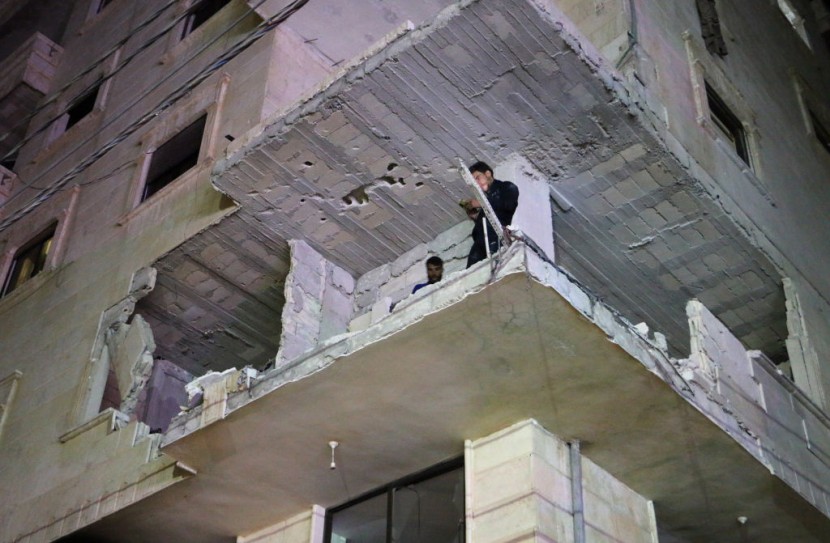
U.S. forces on Monday became the target of a rocket attack just a day after American troops carried out airstrikes against weapons storage facilities used by an Iran-backed militia group.
The rocket attack targeted an oil field in northeastern Syria where U.S. troops and personnel are based. There are no injuries or deaths reported. Officials are also assessing the damage the buildings sustained from the attack.
"We will provide updates when we have more information," Operation Inherent Resolve spokesman Colonel Wayne Marotto wrote in a tweet Monday afternoon.
Initial report: At approx. 7:44 PM local time, U.S. Forces in Syria were attacked by multiple rockets. There are no injuries and damage is being assessed. We will provide updates when we have more information.
— OIR Spokesperson (@OIRSpox) June 28, 2021
Rocket Attack on US Troops
Marotto later added that U.S. forces returned fire using artillery at the base.The question on who launched the attacks against the U.S. forces in Syria remains unanswered. While no one has claimed responsibility for the attack, footage of the rocket assault was shared on social media channels used by militia groups, The Washington Post revealed.
The rocket attack came after President Joe Biden ordered American forces to conduct "defensive precision airstrikes" on facilities used by the Kata'ib Hezbollah (KH) and Kata'ib Sayyid al-Shuhada. The Department of Defense noted that the airstrikes were meant to stem militia attacks.
"And I directed last night's airstrikes targeting sites used by the Iranian-backed militia groups responsible for recent attacks on the US personnel in Iraq, and I had that authority under Article 2," Biden told reporters following the airstrikes, according to CBS News. "And even those up on the Hill who are reluctant to acknowledge that have acknowledged that's the case."
Read Also: US Troops Near Formal Afghanistan Withdrawal, General Miller: Possibility of Civil War Looms
The move was later condemned by Iraqi Prime Minister Mustafa al-Kadhimi, who urged both sides to refrain from escalation. The Iraqi government later noted that they are exploring possible legal actions to take to prevent another U.S. air raid, according to Reuters.
An Act of Revenge?
Top officials in the U.S. believe the attacks were an "act of revenge" for the airstrikes on militia facilities in Iran and Syria. The point may have been underscored on Saturday after thousands of Iraqi paramilitary fighters marched in the eastern province of Diyala.
During the parade, which was attended by Prime Minister al-Kadhimi, also showcase a wide range of tanks and rocket launches at the disposal of the paramilitary fighters.
Hours before the parade in Irbil province, two drones believed to be linked to Iran militia groups landed a mile from where a new U.S. Consulate is currently being built, the area's governor said.
In February, President Biden ordered airstrikes on several buildings in Syria that Pentagon officials believed to be used by Iranian-back militias. The operation was the first known use of military force ordered by the U.S. president.
The airstrikes on Sunday come as Iran and the U.S. are attempting to revive a tattered nuclear deal. The agreement, which began in 2015, seeks to limit Tehran's nuclear capacity in exchange for sanction relief.
However, former president Donald Trump pulled out of the agreement in 2018 and reimposed crippling sanctions on the country. The sanctions would not only affect Iran, it would also affect other countries that conduct business with it, reported NBC News.
© 2026 HNGN, All rights reserved. Do not reproduce without permission.








